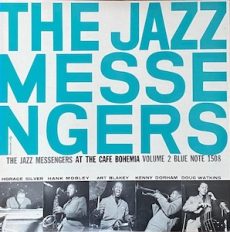
MELTON MUSTAFA JAZZ FESTIVAL
The 29th Annual Melton Mustafa Jazz Festival Weekend returns to Florida Memorial University for an unforgettable music alumni homecoming honoring Dr. Dawn Batson.
Artists:
Jesse Jones Jr. ~ Saxophone
Mark Strowbridge ~ Guitar
James Cotman ~ Drums
Leon “Foster” Thomas ~ Steel Pan
Doug Carter ~ Piano
Nicole Yarling ~ Violin, Vocal
The FMU Funk Jazz AllStars:
Wildmayer Marcelin ~ Saxophone
Mark McClary ~ Drums
Raignor Rollocks ~ Piano
Jaquan Hunter ~ Bass
Joel Chinnery
Day 2 – February 27, 2026
Cigars & Jazz | Dress to Impress!
Gardens Cigar Lounge
19801 NW 27th Avenue
Miami Gardens, FL 33056
8:00 – 10:00PM
Festival Tickets: $20.00 ~ $230.00
See full schedule for details.
More Posts: adventure,bandleader,festival,genius,instrumental,jazz,music,preserving,travel,trumpet

PATTI AUSTIN
A Night of Legacy, Voice, and Vision. Patti Austin Pays Tribute to Patrick Williams.
Grammy Award-winning vocalist Patti Austin joins the Henry Mancini Institute Orchestra and Big Band with Steve Guerra, conductor, for a powerful tribute to the late composer, arranger, and musical visionary Patrick Williams. This unforgettable evening brings to life Williams’ rich, genre-defying legacy—music that was, as lyricist Arthur Hamilton described, “muscular, sensuous, powerful, and captivatingly rhythmical.”
Known for his masterful writing for film, jazz, and the concert hall, Williams received 16 Grammy nominations and a Pulitzer nod for An American Concerto. His music has graced the voices and instruments of legends such as Frank Sinatra, Eddie Daniels, and Tom Scott—and, notably, Patti Austin.
Austin, a revered artist whose career spans jazz, R&B, pop, and the Great American Songbook, brings her unmatched depth, honesty, and elegance to this program. Described by The New York Times as one of the few artists who can authentically channel Ella Fitzgerald, Austin was a close collaborator of Williams, recording several of his works including the GRAMMY-nominated “52nd and Broadway” and selections from his Home Suite Home and Sinatraland albums. Her performances offer not only musical brilliance, but a window into the personal connections that animated Williams’ compositions.
Audiences will be treated to a two-set concert featuring Williams’ bold orchestral works followed by a dynamic second half of big band music and heartfelt vocal performances by Austin. Central to the program will be selections from her celebrated For Ella album, bringing Williams’ sophisticated arrangements and Austin’s commanding interpretations of the Great American Songbook to the forefront.
Tickets: $50.00 General Admission | $45.00 Seniors | $15.00 Student
Stream: https://www.youtube.com/live/fyxztdDdmrw
More Posts: adventure,bandleader,genius,instrumental,jazz,music,preserving,travel,vocal

Requisites
The Jazz Messengers at The Café Bohemia, Volume 2 | By Eddie Carter
Submitted for your approval this morning, we’re returning to the little jazz club at 15 Barrow Street to see The Jazz Messengers at The Café Bohemia, Volume 2 (Blue Note BLP 1508). Returning to the stage are Kenny Dorham on trumpet, Hank Mobley on tenor saxophone, Horace Silver on piano, Doug Watkins on bass, and Art Blakey on drums. The copy I own is the 1978 King Record Company Japanese mono reissue, sharing the original catalog number. Just as he did to start the evening, Art once again greeted the audience, encouraging any latecomers to settle in and enjoy themselves as The Jazz Messengers got things rolling.
The opening selection, Sporting Crowd, is a lively Hank Mobley original that’s off to the races with Blakey and the rhythm section’s rocking introduction, leading into the ensemble’s swinging, cohesive theme. Kenny kicks off his opening statement with a brass bite in a fiery performance that displays his impeccable chops. Hank launches into a scintillating solo that builds intensity before passing the spotlight to Horace, who impresses in an energetic interpretation. Art has the last word and delivers an electrifying display before the ensemble returns to take the song out.
Art introduces the 1944 jazz standard, Like Someone In Love by Jimmy Van Heusen and Johnny Burke. It first appeared in the film “Belle of the Yukon,” and Blakey would re-record it in 1960, but it remained shelved until 1967, when it was released as the title track of The Jazz Messengers album. The ensemble lovingly honors this beloved tune with a relaxing melody. Kenny retakes the lead, delivering a fine example of delicacy and sensitivity. Hank brings the second solo off in charming style, then Horace wraps up with an easygoing reading before the melody’s reprise and warm applause from the audience.
Art turns the microphone over to Kenny Dorham, who gets the spotlight to himself when he introduces Yesterdays, the beautiful 1933 ballad by Jerome Kern and Otto Harbach. It first appeared in the Broadway musical, “Roberta,” that year and was featured again in the 1935 film. Over the past ninety years, it’s become a beloved jazz standard, cherished and reinterpreted by countless artists. The trumpeter’s performance is a model of thoughtful sensitivity as he delivers a melody of serene beauty. As the song’s only soloist, his interpretation shines with gentle sensitivity, each phrase rendered with graceful elegance and culminating in a thoughtful, reflective conclusion.
Avila and Tequila by Hank Mobley injects renewed energy into the quintet with an uptempo beat, with Art’s Latin-inspired, lively, lengthy percussive introduction leading into the vigorous melody. Hank launches into a searing opening statement that creates a lot of heat. Kenny follows him closely, keeping the fires burning in a robust performance. Horace continues cooking hard with a brisk interpretation, inspiring Doug and Art to propel the beat to a vibrant, swinging peak. The drummer rounds out the solos with a brisk workout, joined by Mobley, Silver, and Watkins, before the ensemble comes together for the swift reprise and enthusiastic ovation.
The album closes with I Waited For You, a 1946 ballad by Dizzy Gillespie and Gil Fuller that hasn’t been over-recorded. Hank opens with a delicately pretty introduction, leading into Kenny’s heartwarming melody. The trumpeter continues embracing a touch of refined artistry in the opening statement. Hank follows, gently navigating the song’s nostalgic beauty in the following interpretation. Horace provides the song’s exclamation point in a beautifully crafted finale, exquisitely conceived and presented, leading into the quintet’s breathtaking climax and a slow fadeout as the group reprises their theme.
Alfred Lion produced The Jazz Messengers at Café Bohemia, Volume 2, along with its companion, while Rudy Van Gelder took care of the recording during the group’s live performance. The King Japanese mono reissue offers fantastic sound quality—clean and lively. It’s truly a delightful listening experience from The Jazz Messengers, showcasing some of the finest in Hard-Bop, just as its companion does. If you’re new to jazz or a longtime fan of the group, I wholeheartedly recommend adding The Jazz Messengers at Café Bohemia, Volume 2 to your library. It’san album that promises a rich and enjoyable musical journey.
~ Like Someone In Love, Yesterdays – Source: JazzStandards.com © 2026 by Edward Thomas Carter
More Posts: choice,classic,collectible,collector,drums,history,instrumental,jazz,music

TERENCE BLANCHARD
Malcolm X Jazz Suite Featuring Terence Blanchard, The E-Collective and Turtle Island Quartet
In celebration of the centennial of human rights and civil rights icon Malcolm X, NEA Jazz Master Terence Blanchard will perform his iconic Malcolm X Jazz Suite with his band, The E-Collective, and Grammy-winning Turtle Island Quartet. Blanchard created the project following the release of Spike Lee’s 1992 biopic Malcolm X, for which Blanchard wrote the score and performed most of the trumpet cues. A reworking of the score for quintet, the Jazz Suite has been updated and expanded and has rippled through Blanchard’s work for the past three decades.
Tickets: $52.65 – $152.10 (includes fees)
More Posts: adventure,bandleader,genius,instrumental,jazz,music,preserving,travel,trumpet

DIANA KRALL
A record-breaking musician, Diana Krall is the only jazz singer to have eight albums debut at the top of the Billboard Jazz Albums chart. Her albums have garnered two Grammy Awards and 10 Juno Awards, and include nine gold, three platinum and seven multiplatinum albums.
Her 1999 release When I Look in Your Eyes spent an unprecedented 52 weeks in the No. 1 position on Billboard’s Jazz chart, won two Grammy Awards and went platinum in the U.S. and Canada, establishing Krall as a powerhouse of the genre. Her album This Dream of You garnered critical acclaim and displayed the effortless virtuosity that has become Krall’s musical signature. Krall’s artistry and musicality transcend any single musical style, making her one of the most recognizable artists of our time.
Tickets: $76.05 ~ $231.66 (includes fees)
More Posts: adventure,bandleader,genius,instrumental,jazz,music,piano,preserving,travel,vocal


